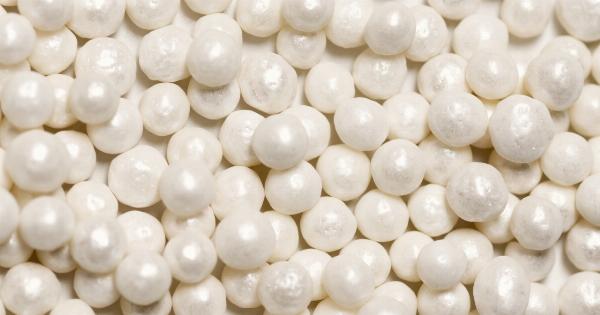Many of us have a favorite drink that we just can’t live without. Whether it’s a morning cup of coffee, a refreshing soda, or a glass of wine in the evening, these beverages often bring us comfort and pleasure.
However, it may be time to rethink our love affair with our favorite drinks, especially if we want to prevent the development of osteoporosis.
Understanding Osteoporosis
Osteoporosis is a bone disease that occurs when the body loses too much bone, makes too little bone, or both. This leads to weak and brittle bones, making individuals more vulnerable to fractures, especially in the hip, spine, and wrist.
It is often referred to as a silent disease because bone loss occurs gradually over time without any symptoms until a fracture happens.
The Role of Beverages in Osteoporosis
While there are several factors that contribute to the development of osteoporosis, diet plays a crucial role. Consuming certain beverages, especially in excess, can have detrimental effects on bone health.
Let’s examine some popular drinks and their impact on our bones:.
1. Carbonated Soft Drinks
Soft drinks, especially carbonated ones, have gained immense popularity worldwide. However, studies have shown a negative association between soft drink consumption and bone mineral density.
The high levels of phosphoric acid in these beverages can interfere with calcium absorption, leading to weakened bones over time.
2. Coffee and Caffeinated Beverages
Coffee is a staple for many individuals to kick-start their mornings. While moderate coffee consumption isn’t necessarily harmful, excessive caffeine intake can interfere with the body’s ability to absorb calcium properly.
If you rely heavily on coffee or other caffeinated beverages throughout the day, you may want to consider cutting back to reduce the risk of osteoporosis.
3. Alcohol
A glass of wine or a night out at the bar may be a regular part of your social life, but heavy alcohol consumption can significantly impact your bone health.
Alcohol interferes with the body’s ability to absorb calcium, as well as its ability to produce vitamin D, an essential nutrient for bone health. Chronic alcohol abuse also increases the risk of falls, which can lead to fractures in individuals with osteoporosis.
4. Energy Drinks
Energy drinks have gained popularity among young adults and athletes due to their stimulant effects. However, these beverages often contain high levels of caffeine and sugar, which can have detrimental effects on bone health.
It is important to moderate consumption and opt for healthier alternatives when possible.
5. Sugary Fruit Juices
While fruit juices can be a refreshing way to get essential vitamins, many commercial options are loaded with added sugars. Excess sugar intake can lead to inflammation and increased calcium excretion in the urine.
If you enjoy fruit juices, consider making your own at home with fresh fruit and minimal added sugars to protect your bone health.
6. Excessive Tea Consumption
While tea is generally considered a healthy beverage, excessive consumption can hinder calcium absorption. This is mainly due to the presence of tannins, which can bind to calcium and hinder its absorption in the gastrointestinal tract.
If you’re an avid tea drinker, consider having your tea between meals to minimize any interference.
7. High-Sodium Drinks
Many individuals consume high-sodium drinks, such as certain sports drinks or packaged soups. Excess sodium intake can contribute to calcium loss through urine, increasing the risk of bone loss and osteoporosis.
Opt for low-sodium alternatives whenever possible to protect your bone health and overall well-being.
8. The Importance of Calcium and Vitamin D
While cutting back on certain drinks can help prevent osteoporosis, it is equally important to focus on adequate calcium and vitamin D intake.
Calcium is a fundamental building block for strong bones, while vitamin D helps the body absorb calcium effectively. Including calcium-rich foods like dairy products, leafy greens, and fortified cereals, combined with exposure to sunlight or vitamin D supplements, can help support your bone health.
9. Moderation and Healthy Alternatives
If giving up your favorite drink completely seems daunting, consider moderation and healthier alternatives. Mindful consumption of your preferred beverage can be a compromise that allows you to enjoy it while minimizing its impact on your bone health.
Additionally, there are various substitutions available that can provide similar satisfaction with greater nutritional benefits.
10. Consult with a Healthcare Professional
If you are concerned about your bone health or have a family history of osteoporosis, it is crucial to consult with a healthcare professional.
They can assess your risk factors, provide personalized recommendations, and conduct bone density tests when necessary. Early intervention and lifestyle modifications can make a significant difference in preventing or managing osteoporosis.
Conclusion
Osteoporosis is a serious bone disease that requires our attention and a proactive approach. While it may be difficult to give up our favorite drinks entirely, being aware of their potential impact on bone health is essential.
By making mindful choices, moderating consumption, and focusing on nutrient-rich alternatives, we can protect our bones and reduce the risk of osteoporosis, ensuring a healthier future.































